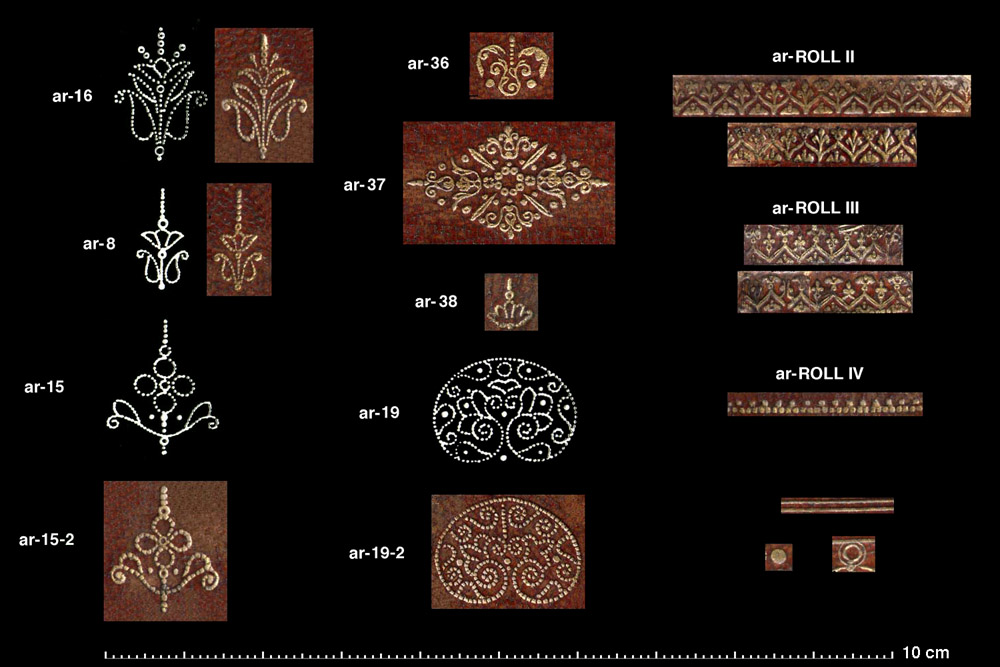

| In the above diagram I have extracted the tool impressions from the 1659 binding shown below, (click on these images to see enlargements). |
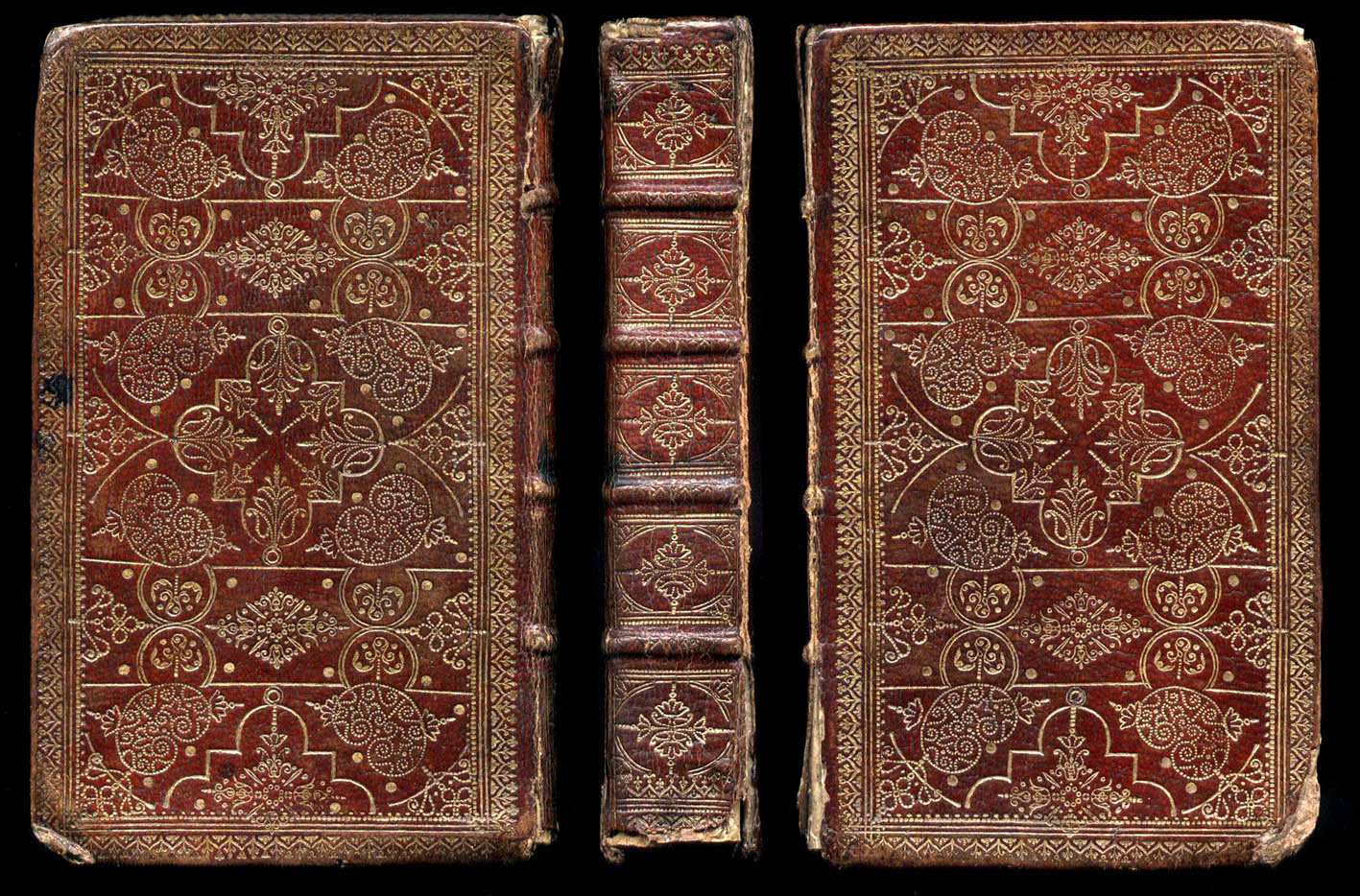
|
On the previous pages I have shown Raphaël Esmerian's Tool Classification diagram, Table VI - ANTOINE RUETTE 1640-1669, taken from his 1972 publication Douze Tableaux Synoptiques sur La Reliure au XVII eme Siècle. From a comparative analysis of the imprints found on the BLDB bindings attributed to Antoine Ruette, Davis 458, Davis465 as well as those of Davis 463 and the 1659 binding, we can now be reasonably sure that all 4 bindings can be attributed to this binder. Thus, a number of new tools need to be added to those listed by Esmerian. I have started with those found on the 1659 binding: adding tools 15-2, 19-2, 36, 37, 38 and ROLL II, ROLL III, ROLL IV. In the diagram below I have classified the tool imprints from the Davis463 'key' binding |
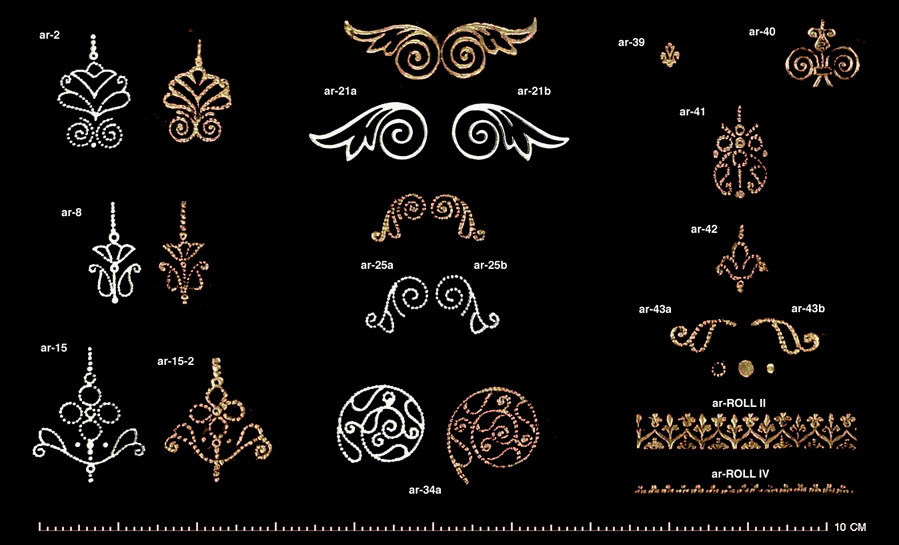
| In Comparative Diagram 2, I show Davis463 imprints and matching Esmerian type models. There are some however that are not found in his Table VI; these I have added to his classification as: 39, 40 , 41, 42, 43a and 43b. |
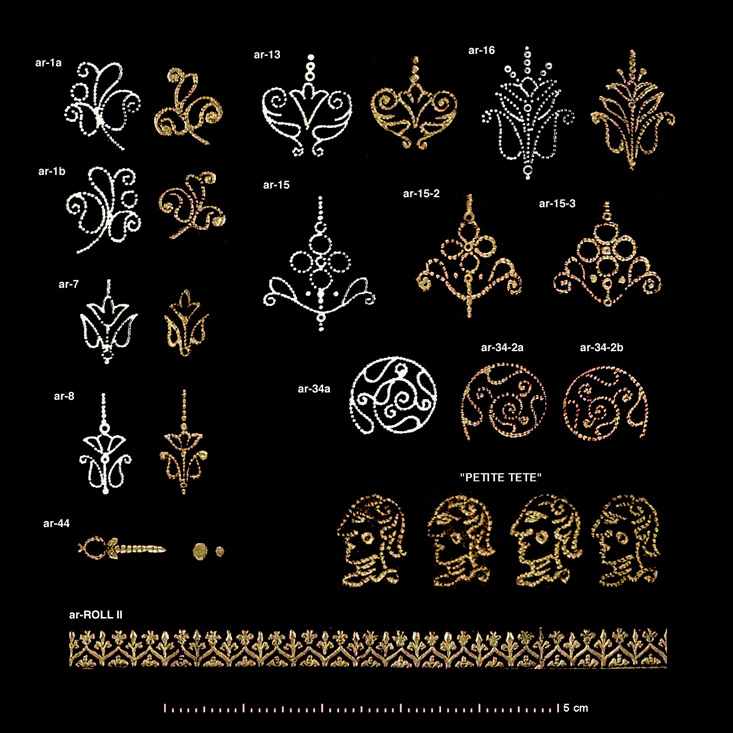
| Raphaël Esmerian devoted much of his research to the "Petite Tete" imprint. In his catalogue he illustrates the important examples, as well as giving a complete listing of the bookbindings on which they appear. Herbert P. Horne speaks of these "heads" in his book An Essay in the History of Gold-Tooled Bindings London, 1894: |
| "Tooled upon this binding, along with the signature of Badier, is a couped head, worked 'au pointillé' like the rest of the figured tools, which is repeated no less than fifty-two times. This head which is well known from its occurrence upon other bindings, has passed, according to a vague tradition, not only for the mark, but, also for the portrait of Le Gascon. Dismissing this tradition as an invention worthy of the predecessors of Edouard Fournier, in the history of bookbinding, M. Thoinan argues that this head is the mark of Florimond Badier, and that all the bindings that are tooled with it, were executed by him : and he adds not a little to the force of this argument, when he points out, that the tools used upon the signed binding of the Imitation, occur, also, upon other bindings, both with and without the couped head." |
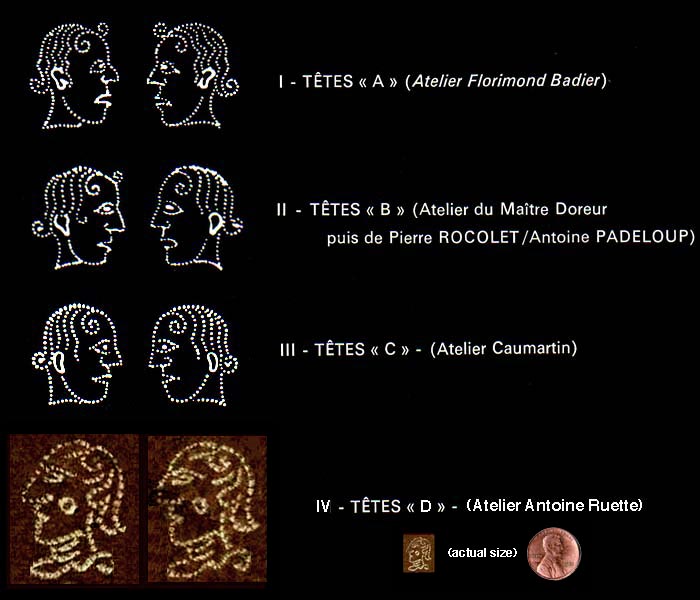
| I include here Ruette's head in Esmerian's head collection. Unlike the others which are "copies", Ruette's heads can be easily recognized, and may serve more like a signature, as may have been the original intent of the first "heads". This tiny detail (smaller than a penny) is a great aid to identifying bindings. |
| information about the author | return to the home page of VIRTUAL BOOKBINDING |